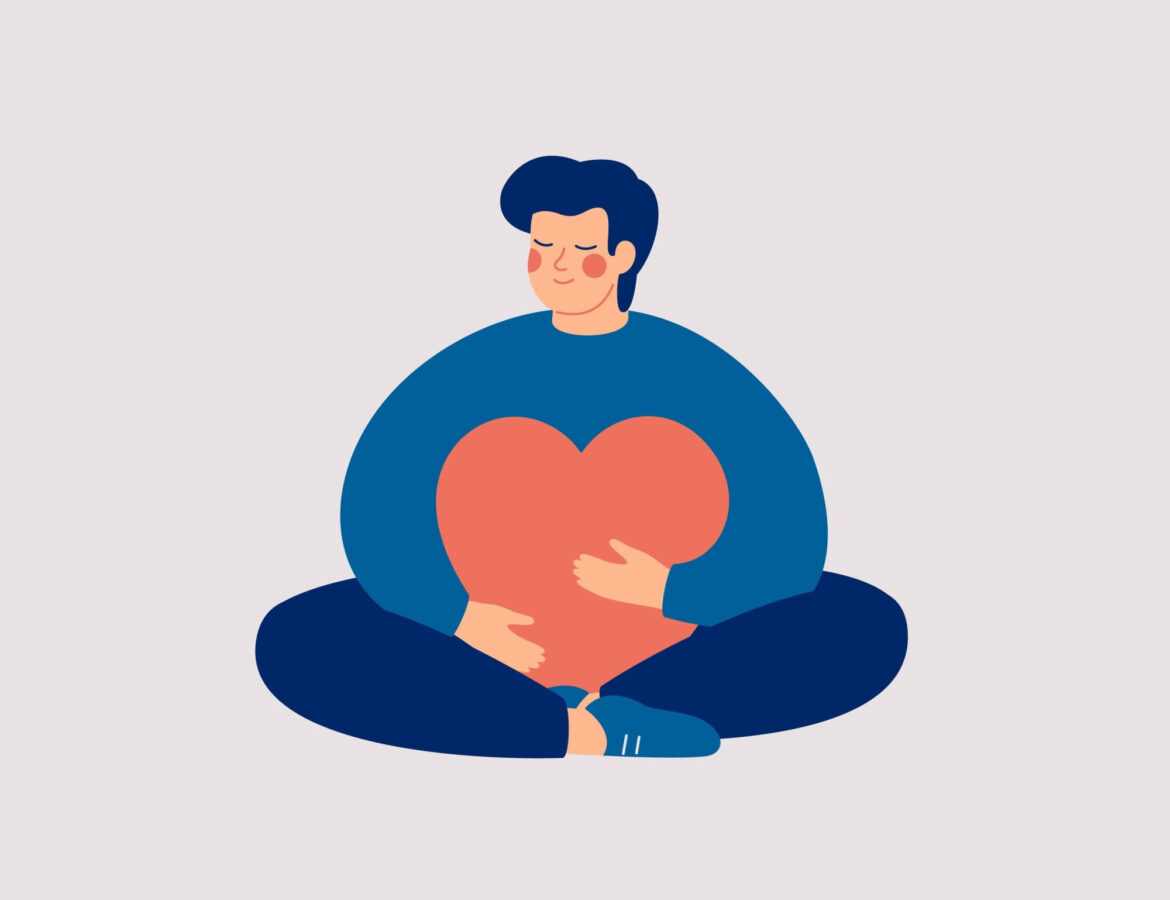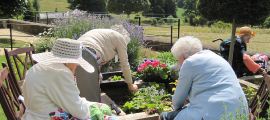Our autumn issue is out now. We chat to Kerry McWilliams, founder and CEO of Lightwork, about Brainspotting. Dive on in to find out more…
Physiology
Gardening the Soul with Therapeutic Horticulture, Hans Wieland
Gardening the Soul – The Wonder of Therapeutic Horticulture
By Hans Wieland
Gardening is a wonderfully flexible medium that can transform lives, and, working in The Organic Centre, I have seen first-hand how gardening can help everyone, regardless of age or disability.
We all have heard people say, “Gardening is therapeutic,” but the HSE-funded Community Food Project (CFP) I coordinated from 2004 to 2011 proves that with the following figures: since starting with the CFP, participants have reported 67% better health, 91% more active, 78% improved fitness and 81% less stressed. One of the other findings was that gardening together provided ‘mental health gains for those with specific difficulties.’ (J.P. Burke: Growing in Confidence, 2007 Evaluation Report)
Researchers at Bristol University and University of London conducted research which suggests that friendly bacteria which are common in fertile soil cause brain cells to produce the beneficial chemical serotonin. It also highlights the importance of gardening organically without using chemicals and toxic sprays.
The CFP has also been working with the Occupational Therapy Department of the Mental Health Services in Sligo. The gardening project, as part of a needs-based therapeutic programme in the hospital, has supported a wide range of individual goals, e.g. relaxation, exercise, socialising, motor skills development, motivation and independent living skills. The project garden includes a polytunnel and is grant aided in 2012 by the National Lottery with the specific purpose of ‘improving physical and mental health.’
The Senses Garden at The Organic Centre has become a well-copied feature, and Helen McCauley – who works as a ‘garden therapist’ in Cregg House – got many ideas from there. “The use of raised beds helps our gardeners using wheelchairs to fully participate in the garden project. Our sensory beds and flower gardens offer a restful place for all our other service users to enjoy through vision, smell, taste, touch and sound,” she says.
Cregg House is a residential and day-care service for adults with intellectual disabilities located in Sligo, and has fully embraced a gardening skills programme to offer both educational and therapeutic opportunities to clients with disabilities and autism attending the service. “We have a polytunnel, small glass house, an outdoor gardening area and a cabin,” McCauley continues. “This allows us to carry out gardening activities throughout the year, giving our gardeners an awareness of time and seasonal events.”
She has seen many challenges overcome, “Some of our gardeners have difficulty with fine and gross motor skills. Fine motor skills can be improved upon with the use of different seed sizes, starting off with the bigger seeds like broad beans, and gradually, over time, reducing the seed size so that they can eventually handle smaller seeds like sunflowers and lettuce seeds.”
The wonderful thing about gardening is that all the tasks can be broken down into small achievable tasks or adapted to allow people with different abilities to participate in all sorts of gardening activities. Therapeutic horticulture already has many proven benefits, and The Organic Centre is currently undertaking a research project to look into it further.
I would like to acknowledge the invaluable support given to me by Karen Shanley and Daniel Gaffey in researching this article, and a big thank you to Helen McCauley from Cregg House for providing me with insightful information.
(They have asked that the following be put in a separate text box.)
What is therapeutic horticulture?
Social and Therapeutic Horticulture is the formal name given to the use of plants and gardening to promote personal development, healing, health and wellbeing.
It can be part of a person’s rehabilitation to enable them to recover from a difficult time in their lives such as drug addiction, bereavement or physical injury.
It can help clients to learn new skills, and has been shown to slow down the progress of a degenerative illness. Acquiring new skills can also improve the chances of finding employment.
Other benefits include increased physical activity, social interaction, opportunities for voluntary work and social inclusion. (Thrive 2011)



